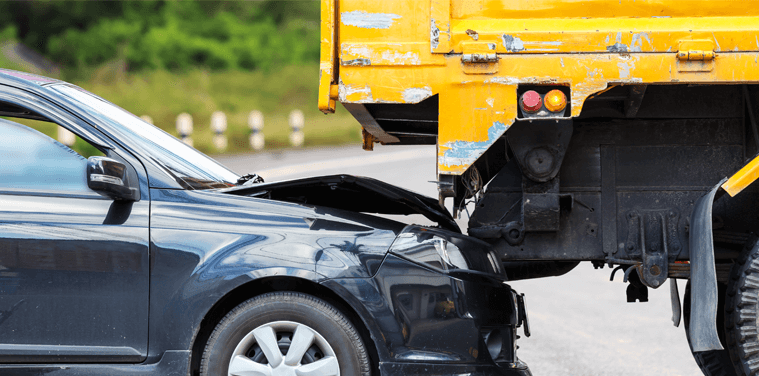Popular Blogs

Truck accidents can be catastrophic and cause grave injuries. Being in an accident can be traumatic and hard for you to manage and handle things. In the case of truck or semi-truck accidents, the situation is even more grave as the impact of the collision is greater. Handling such a situation can be difficult as things can get hazy and complex. Knowing the best course of action can ensure you avoid any damages to sustain and protect your interests and chances of recovering compensation. Here is what you should do after you have been in a truck accident:
The first thing you need to do is assess yourself. If you are fine and can move around, try and check on your fellow passengers or other people involved in the accident. If you are bleeding, you should call 911 right away and do the same if other passengers involved in the accident are bleeding. Call the ambulance if necessary. Wait to get examined by the doctor as there are a lot of injuries that can go undetected. This is important because a doctor could easily detect injuries that may not show immediate symptoms. It will also ensure that the injuries caused are documented and presented as evidence later on in the process. Diagnosis of these injuries at a later stage can make it hard for you to demonstrate that they were caused due to the accident. Make sure you go for a full evaluation even after a doctor has examined you at the scene.
Do not leave the site of the accident as it can be used against you. You can be falsely accused of causing the accident. When you wait, make sure you are out of harm’s way and if you can move your vehicle to a safe place. If your car is broken down, put cones around it, light flares, or light up the emergency lights of your vehicle to prevent any other accidents. When that is taken care of, call the police or state highway patrol. Make sure you narrate the incident as it happened to the officer that arrives on the scene and gets your side of the story on the accident report. You should request the police for a copy of the accident report to keep for your records and present as evidence.
If you can get on your feet and are not injured, you should collect as much evidence as possible. First, ensure the crash site is secure for you to walk around and there is no incoming traffic that can put you in danger. Evidence collection can include talking to witnesses, noting their names and contact information, taking pictures, and noting the road and weather conditions that may have contributed to the accident. Be sure to get the following details:
Like your body, your car might appear fine from the outside but may have sustained damages internally. However, this does not mean that you take the car straight to the nearest body shop. You should avoid this because you are required to send across repair estimates to your insurance company. Some companies have dedicated applications and can guide you through the proof and pictures you need to provide. In addition, some insurance companies offer roadside assistance and towing services as part of the insurance policy. Call the insurance company to get your car towed if they offer the services and take the vehicle to the body shop but make sure you do not get any work done until the insurance company clears and approves the repairs.
Keep a cool head and avoid conversations with the other driver. Often, people tend to lose their cool and say things that can later be used against them during such situations. Try and manage the situation with a cool head.
In no situation should you admit liability or fault. Avoid apologizing to the driver to be polite as it can be used against you in a court of law. By conversing with the driver, you may end up giving the other party leverage to use against you in a court of law.

Truck accidents are often huge and involve clearing up debris, road closures, or fatalities and often end up in newspapers or local news networks. Avoid the urge to comment on these news pieces.
Avoid posting anything about the accident on social media, as it can backfire and be used against you. Even if you delete the post, screenshots of it can appear in court depositions or settlement discussions. Therefore, it is best that you only inform your close friends and family about your accident and well-being via phone calls.
After you are clear and feeling better, the first thing you should do is call a truck accident lawyer. Truck accidents are more complex than car accidents as they involve multiple parties. Besides this, multiple federal and state laws come into play as truckers travel all across the country. In addition to this, truckers are employed by companies that have powerful legal assistance and expertise backing them. Therefore, the best way to protect your interests is to consult a truck accident attorney and ask for their guidance throughout the course of the case. In addition, having a truck accident lawyer by your side will ensure you get fair compensation and understand if a settlement or trial is the best way out of the dispute.